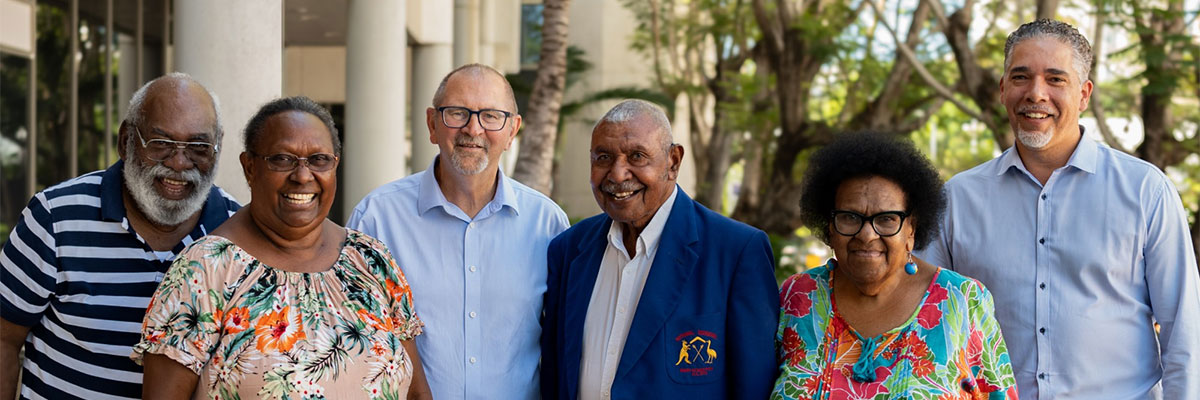Four years of recognising Torres Strait Islander child-rearing practices

Queensland made history four years ago by embedding Torres Strait Islander child-rearing traditions into law – transforming lives, preserving cultural identity, and creating opportunities for future generations.
This September 2025 marks the fourth anniversary of the Queensland Government’s passage of the Meriba Omasker Kaziw Kazipa (Torres Strait Islander Traditional Child Rearing Practice) Act 2020.
More than 100 Cultural Recognition Orders have been granted to date positively impacting more than 600 individuals involved in the application process. For these families, the granting of a Cultural Recognition Order has changed their lives for the better, paving the way for a positive future for generations of Torres Strait Islander children to come.
The landmark legislation recognised Torres Strait Islander lore in modern law by creating a process for legal recognition of Torres Strait Islander traditional child-rearing.
Why the Act was introduced
For generations, Ailan Kastom child-rearing practices has guided Torres Strait Islander families with children entrusted from biological parents to cultural parents, who then take on the responsibility of raising the child according to the traditional practice which has been called Kupai Omasker.
Before the Act legally recognised this practice cultural parents faced significant challenges.
They were unable to get essential legal documents, such as passports and birth certificates, that accurately reflected their legal parentage and their child’s cultural identity.
This absence of legal recognition also created other challenges, including the stress caused by succession disputes, custody conflicts, and uncertainty about the authority of cultural parents to make critical decisions regarding their child’s medical care, education, and overall decisions related to their child’s general wellbeing.
The Act addressed these challenges by providing a legal pathway that honours and protects traditional child-rearing practices.
Its growing impact
Getting a Cultural Recognition Order is a transformative step, unlocking access to vital services and opportunities. For many, it means receiving a birth certificate for the first time, helping people to get access to education, employment, healthcare, travel, and other essential services.
Imagine the joy of a Torres Strait Islander teenager finally being able to apply for their driver’s licence, a milestone many take for granted. Or the excitement of holding a passport for the first time, ready to embark on a journey overseas. That’s where Cultural Recognition Orders are a game changer for those raised under Aislan Kastom.
By mid-2025, the initiative reached a significant milestone, with 100 Cultural Recognition Order orders being granted. Each represents far more than a statistic –it represents the lives, stories and cultural pride of those who have benefited from the program.
The milestone was celebrated with a vibrant community event, bringing together families, Elders, community members, and government representatives. The celebration featured traditional island dancing, storytelling, and meaningful discussions about the importance of preserving Torres Strait Islander traditions and cultural heritage while securing legal recognition for future generations.
Looking ahead
The Queensland Government in the 2025–26 Budget has reaffirmed its commitment to this groundbreaking program, allocating $6.8 million over three years from 2026–27, and a total of $8.9 million to further support its continuation. This investment ensures that Torres Strait Islander child-rearing practices remain protected, respected, and accessible to families seeking recognition.
As the program grows, the impact of Cultural Recognition Orders will continue to expand—honouring the wisdom of Elders, strengthening cultural identity, and creating new opportunities for Torres Strait Islander children and families across Queensland.
More information
Learn more on how to apply for a Cultural Recognition Order on the Office of the Commissioner (Meriba Omasker Kaziw Kazipa) website.

 This work is licensed under a Creative Commons Attribution 4.0 International (CC BY 4.0) licence
This work is licensed under a Creative Commons Attribution 4.0 International (CC BY 4.0) licence